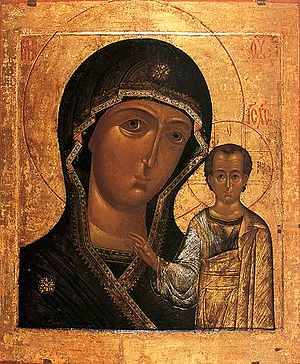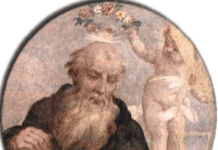A clever writer[1] once observed that Jesus never made the mistake of qualifying any of his statements: “Be ye perfect as your heavenly Father is perfect.”[2] What can that mean, for, as Jesus said, “no one is good except God alone”?[3] In John’s Gospel, Jesus is equally demanding and univocal: “Love one another as I have loved you.”[4] But who could possibly love as Jesus loved? How could anyone match his dignity as the Son of God—“This is my beloved Son, in whom I am well pleased”[5]—or achiever the intensity of his love—“I have a baptism to be baptized with; and how I am straightened until it is accomplished!”[6]—or the universality of the redemption wrought—“At the name of Jesus every knee should bow, in heaven and on earth and under the earth, and every tongue confess that Jesus Christ is Lord, to the glory of God the Father”?[7] No one can approach such perfection, but there is a consideration that allows us to meet what is on the surface an impossible demand. We begin by observing that the love that directed those actions of Jesus was determined by who he was as well as by the time and place of his earthly life. I may claim to “love as he loved,” then, if I fully engage my own person and in the peculiar setting of my life, in this time and place.
We may turn now to Our Lady and note who she was and when and where she lived. We see at once that her person and behaviour were inseparable from her divine maternity. Elizabeth recognized that when she exclaimed, “Why is this granted me, that the mother of my Lord should come to me?”[8] At the wedding feast of Cana, she is identified simply as “the mother of Jesus.”[9] Later Jesus describes as being his mother “whoever does the will of my Father in heaven.”[10] These statements are confirmed and extended at the crucifixion when the beloved disciple—surely to be identified with each of us—receives Mary as his mother.[11] Mary was honoured with the title Theotókos, Mother of God. Already traditional in the fourth century, it was invoked at the Council of Ephesus in 431 as a way of recognizing and safeguarding the full humanity of Jesus: as the eternal Word, he was fully divine, but he was also fully human in having had a human mother. The maternal love of Mary for Jesus—and consequently of all the members of his body—which has continually been honoured in the history of the Church, has been a constant characteristic of her apparitions. At Guadalupe, for instance, in 11531, she told Juan Diego:
I wish that a temple be erected here quickly, so I may therein exhibit and give all my love, compassion, help, and protection, because I am your merciful mother, to you, and to all the inhabitants on this land and all the rest who love me, invoke and confide in me.[12]
Thus, we may pray with Juan Diego and with all the Americas, “Holy Mary, Holy Mother of God and Mother of the Church, pray for us.”
[1] Robert Lane Fox, Pagans and Christians.
[2] Matt 5.48.
[3] Mk 10.18.
[4] Jn 13.34.
[5] Matt 3.17.
[6] Lk 12.50.
[7] Phil 2.10-11.
[8] Lk 1.43.
[9] Jn 2.1.
[10] Matt 12.50.
[11] Jn 19.26.
[12] Available at https://sspx.org/en/news-events/news/i-am-your-mother-promise-our-lady-guadalupe-53414. Accessed on 28 December 2022. Emphasis added.












